Catch Up with WesSports: A Conversation with Athletic Director Mike Whalen
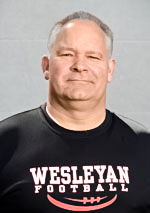 Mike Whalen ’83 returned to his alma mater in 2010 after 15 years at Williams, intent on elevating the status of Wesleyan athletics. Hired as head football coach, Whalen established a culture of winning within the football program, culminating in back-to-back seven-win seasons in 2013 and 2014. Aspirations to propel all of Cardinal Nation to the next level saw him take on the role of Associate Athletic Director in 2012. He had been juggling those two roles for the last three years, but this year stepped down from his position as head football coach in order to devote all of his energy to his role as Wesleyan’s head AD.
Mike Whalen ’83 returned to his alma mater in 2010 after 15 years at Williams, intent on elevating the status of Wesleyan athletics. Hired as head football coach, Whalen established a culture of winning within the football program, culminating in back-to-back seven-win seasons in 2013 and 2014. Aspirations to propel all of Cardinal Nation to the next level saw him take on the role of Associate Athletic Director in 2012. He had been juggling those two roles for the last three years, but this year stepped down from his position as head football coach in order to devote all of his energy to his role as Wesleyan’s head AD.
The new year is upon us, so The Argus caught up with Coach Whalen, as he is still known, to ask him about his transition, the tough competition Wesleyan faces, what to watch this fall, and more.
The Argus: How would you sum up the 2014-15 year in athletics for Wesleyan? Give us some highlights.
Mike Whalen: We definitely made some great strides last year. We had four individuals win NESCAC player of the year and four win NESCAC rookie of the year and those are certainly awards that haven’t come our way very often. The football team winning back-to-back seven-win seasons for the first time since 1947; the basketball team winning a NESCAC championship; the baseball team winning back to back NESCAC championships, as well as three consecutive Little Three titles; our women’s tennis team making the NCAAs, having a national champion in Eudice. So there are certainly a lot of really positive things going on and our goal is to try and build on that this year.
A: What were the main agenda items in the athletic department this summer?
MW: Every summer, recruiting is the primary focus. If you’re going to compete in the NESCAC, because it is the most competitive Division III league in the country, you have to really dedicate yourself and work hard to improve over the summer. That means getting to camps and showcases to see as many recruits as you can, and I think the majority of our coaches are doing that.
A: As the Athletic Director, what is your role in that process?
MW: I offer to meet with any top recruits that come through, and several coaches have taken me up on that. I think now with me officially being out of football, I’m going to have more time to really get involved with a lot of our other sports, especially in the fall, because when football came I just kind of shut everything else down, and that was my primary focus. So I’m looking forward to having the opportunity to see a lot more of our fall teams, get to know our fall athletes a little better. But again, I see my job as making sure that our goals are being met, and first and foremost I want any student-athlete that comes through our program to have a first class experience similar to any of the top programs in the NESCAC. To do that we’ve got to fundraise, we’ve got to engage our alums, we’ve got to do a lot of things that are critical in order to be successful.
A: How do you see your transition out of football affecting that program?
MW: It’s still early yet, but obviously it’s strange for me. It’s been 31 years since I haven’t played or coached, so this fall will be different. Personally, I already know that the game days are going to be difficult. The opportunities to play and compete against other teams will be what I miss the most. But from my perspective, I know the program’s in great hands with Coach DiCenzo; he brings a lot of energy to the position, and I’m confident we’re going to have another successful season.
A: What’s noteworthy and exciting in men’s athletics this fall?
MW: Every season’s a new slate and you don’t really ever know what to expect. With football this season we’ve graduated arguably the best, most talented class of players in Wesleyan football history. And any time that happens, what’s really interesting to see is if the players you think will step up do step up. We have good players that haven’t had a chance to play because of the other really good players ahead of them, and now those guys are going to get their chance. Men’s soccer has had a run of 15 years or so where they’ve been among the top NESCAC teams consistently, and no matter how many all conference or All-American players graduate, the next class always seems to step up and do a great job for us. Those guys were a really young team last year, so I know that their goals are set high so that will be really fun to watch as well.
A: What’s noteworthy and exciting on the women’s side?
MW: Overall, our success has been sporadic on the women’s side. A couple years ago in women’s soccer we seemed to really be emerging, but in the last two seasons we’ve had a long string of tight losses, or players getting hurt, et cetera, and those are all things that factor in to having a great season. One of the things that we fight at our level is having enough depth to fight through injuries, and that’s a challenge that every coach has in every sport. But I’ve been pleased to see the strides we’ve made in women’s crew, and obviously women’s tennis has been really good. Those have been two of our most successful women’s sports recently, and I think that as we continue to have more sports win across the board, it hopefully will become contagious. Winning championships in football, and in men’s basketball, and in baseball kind of shows that it can be done.
A: A new class of first-years is being indoctrinated into the Little Three rivalry. Can you talk about its importance in Wesleyan athletics?
MW: Because I played in this league and have coached in this league for so long, to me, having the opportunity to compete for a Little Three Championship is sort of the championship within the championship. You have the NESCAC, but you also have the Little Three, and that’s something that other teams in our league don’t have. If you ask our student-athletes they’ll tell you that I’m always talking about how important those Little Three games are. Undoubtedly, when a team wins a Little Three championship, it’s a big deal. And it’s a really good goal because Williams and Amherst are so good in most sports that if you win the Little Three, it probably means you win the NESCAC. Also, if our student athletes buy into the importance of the Little Three, our student body will do so as well. And when we have little three games, people will say, “Hey, let’s go, today we’re playing Amherst,” or, “Let’s go, today we’re playing Williams.” That’s really the message that I’ve wanted to get out since I arrived five years ago. I’ve wanted to bring a can do attitude to this campus. And the thing is that we really can win those games, if we have the right preparation and mentality.
A: Is that rivalry as important to Amherst and Williams?
MW: I can tell you that Williams versus Amherst is bigger than Williams versus Wesleyan. And that’s because historically in most sports, when those schools played Wesleyan, it was an easy win. Their mentality was, “Unless the bus crashes, we’re going to win.” But now we’re starting to wedge our way in there. And it’s one of those things where if you never win, you’re not going to get excited about it, but when you start having a little success, and being consistently competitive, it’s more fun. To me, just as creating a culture of winning in Wesleyan football was my first step in coming back to Wesleyan and building this thing, now I feel like it’s time to take the next step, and that’s making our athletic program competitive across the board.
A: You mentioned the caliber of the NESCAC earlier. Can you elaborate?
MW: It’s the best Division III athletic conference in the country. There’s not much else to say. If you look at the stats, it’s ridiculous how many teams in our league are competing for national titles. I always use an example from women’s lacrosse. Everyone looks at our women’s lacrosse team and wonders why we can’t win in games in the NESCAC. Our women’s lacrosse team last year plays Pomona during spring break. We beat Pomona. Pomona wins their conference and goes to the third round of the NCAA tournament. We don’t even get into our conference tournament. That’s how tough it is. That’s how challenging it is. And it’s not just one sport. It’s across the board. Tufts last year alone had three of four national champions. That’s amazing. And when you’re playing you feel week out that it’s a tough, tough conference. In the NESCAC, you have to come ready to play every game or someone’s going to knock you off. And I hope that’s why a lot of our athletes are coming here. Obviously academics are number one, but if you can go out there and say, “Hey, you have an opportunity to come and get a world class education and compete at the highest possible level within Division III in the country,” that’s a pretty good package to sell. And in our conference, we have that opportunity.
Competition commences this Tuesday with men’s soccer hosting Eastern Connecticut and field hockey traveling to Roger Williams.

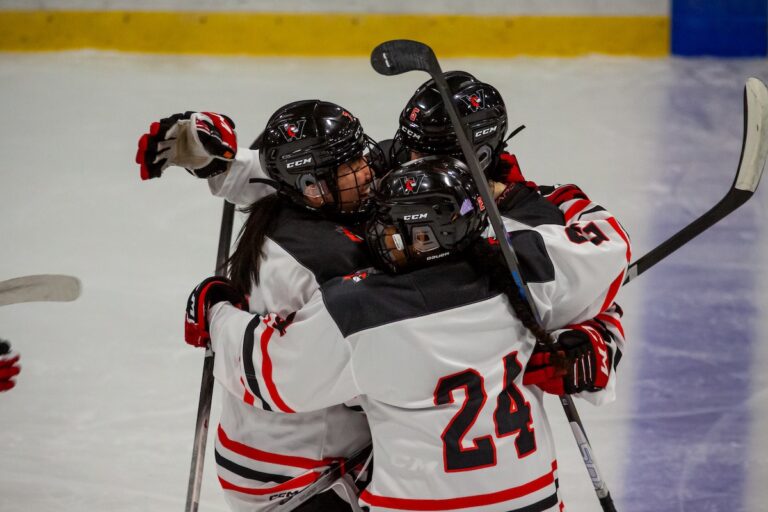
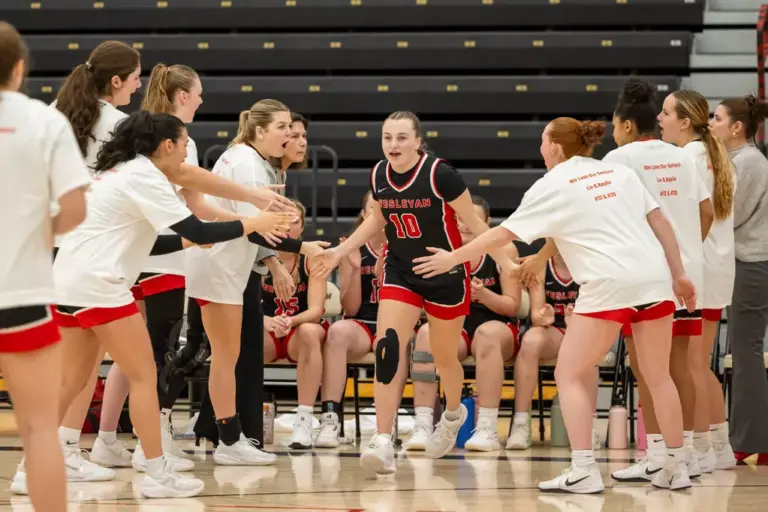
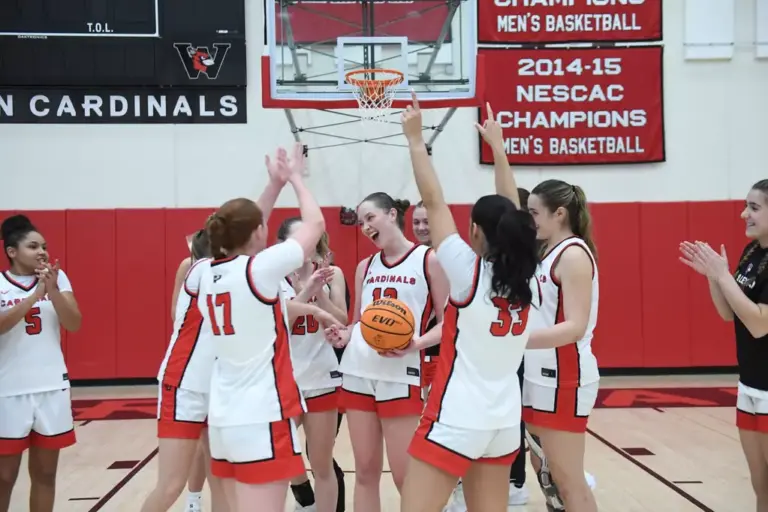
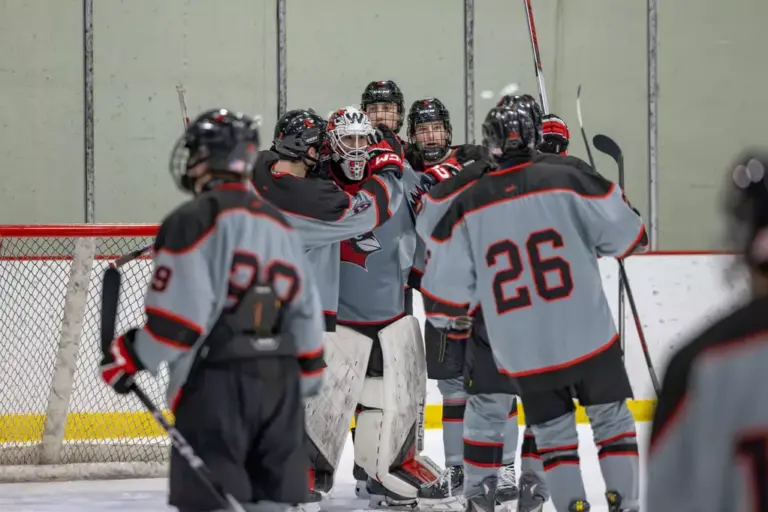

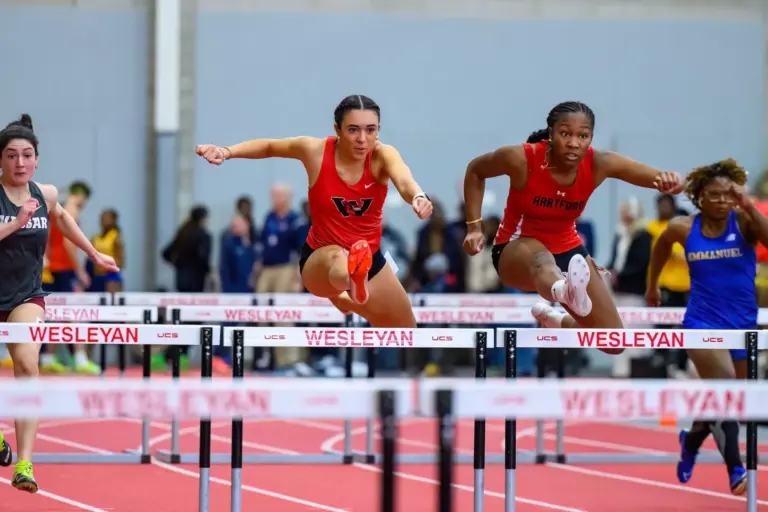
Leave a Reply